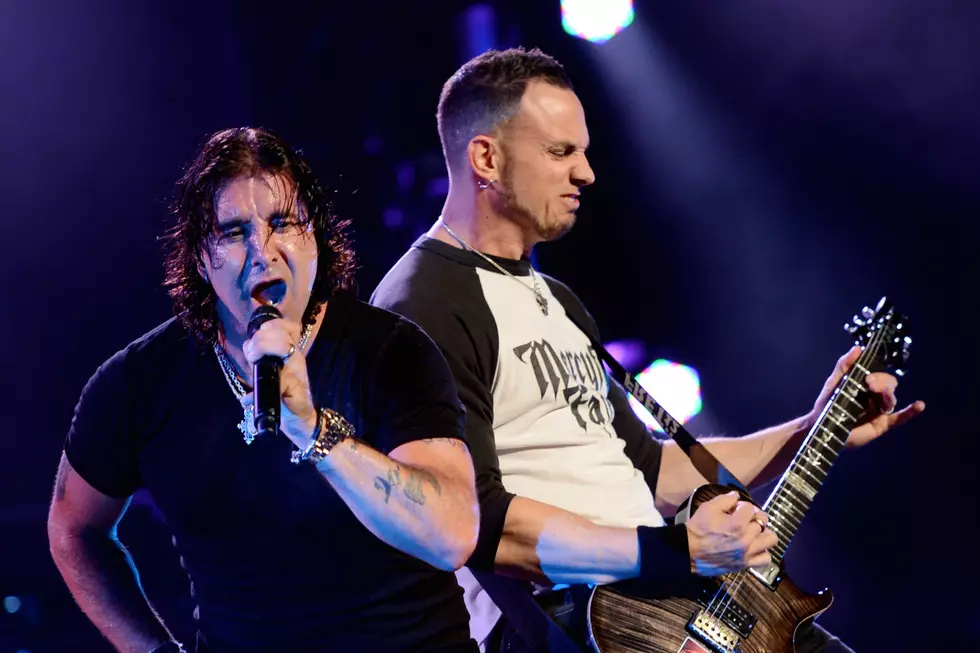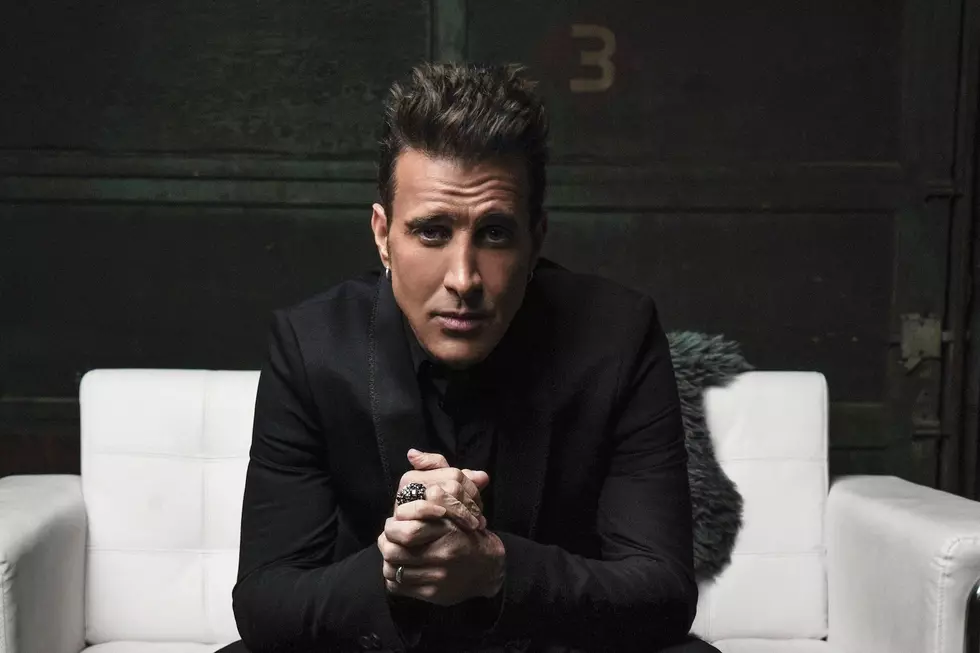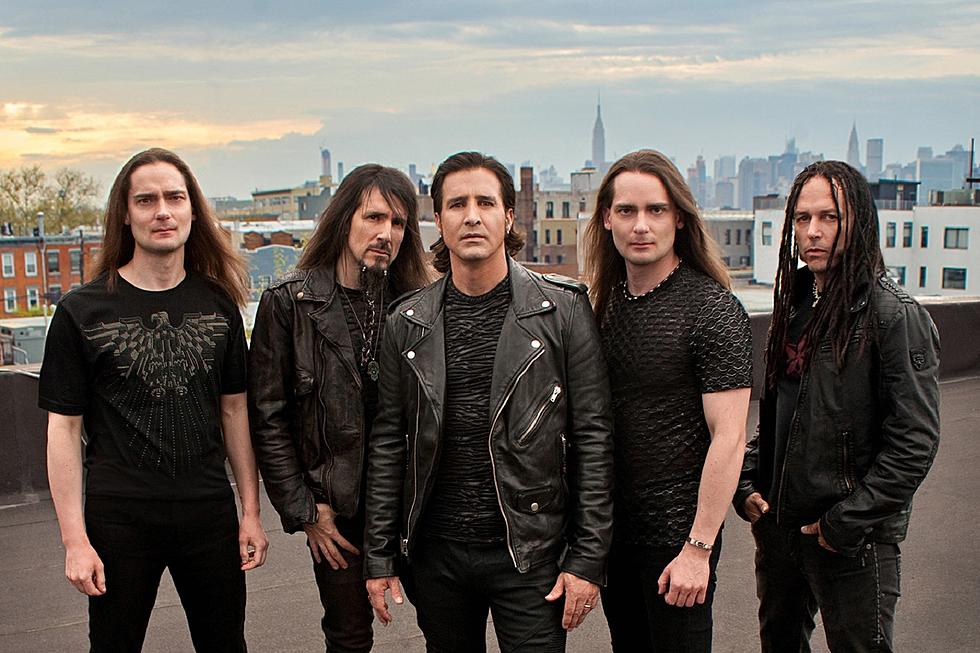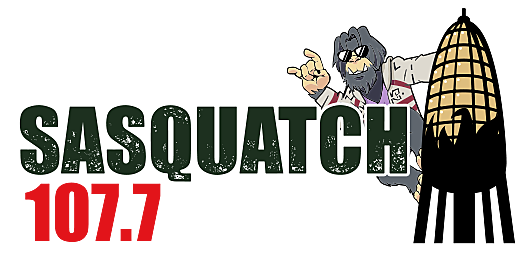20 Years Ago: Creed Break Out With Their Debut Album ‘My Own Prison’
As we know now, Creed became one of the biggest selling rock bands of the late '90s and early 2000s, but their rise to the top was anything but assured. However, on Aug. 26, 1997, the band's journey to releasing their first album finally came to fruition and My Own Prison wasted no time in becoming a major breakout smash for the band.
The group's origins date back four years prior when high school classmates and college friends Scott Stapp and Mark Tremonti decided to form a band. They held auditions and added rhythm guitarist Brian Brasher, bassist Brian Marshall and drummer Scott Phillips. Though Brasher didn't stick, the foursome continued. One of their first gigs was under the name Naked Toddler, suggested after reading the phrase in a headline in the local newspaper, but the moniker was not well received. Marshall suggested the name Creed, which had been part of the title of his previous band Mattox Creed, and it stuck.
“I wasn’t thinking in terms of a religious creed,” said Stapp in his book Sinner's Creed. “My goal was simple: to create a rock and roll band. Creed means something you believe in. I believe in the four of us. I believe in this band.”
The creative bond of Tremonti and Stapp led the way. Tremonti stated in a past interview, "With Scott, I would bring in the music, melody ideas, certain lyric ideas and then he'd kind of run with the lyrics and change them or use some of it, not use some of it, stick to the melody for the most part or change it. But the music was always mine in Creed. All the music came from me and I'd get together with him and work out the remaining melodies and a lot of times he'd just rewrite the melody or lyric. It just depended on the song."
Stapp told me during an interview that even though the band were hitting their creative stride, it took a while before they found their sound. "I remember after Mark and I and the guys wrote our first five or seven songs and we hadn't found our identity yet. Then we wrote a song called 'Grip My Soul,' which we never recorded or put out but I remember leaving band rehearsal and all of us felt the same way. Like, alright, we found ourselves. We found out who we are and then right after that is when 'My Own Prison' poured out of us." He adds, "If I'm remembering correctly, those were essentially the next 10 out of 13 songs that we wrote after that initial 'find your identity' moment that I think every band has.
The vocalist told us in an interview earlier this year (seen above) that while he believed in the group, there was no idea at the time where it would go, starting off with very humble beginnings. “My Own Prison, Creed’s first album, was really at a time in the band’s life when we were just four college guys working jobs and we really didn’t know what we had. We had been writing songs, jamming in Scott Phillips’ living room and really didn’t have any idea of what it was going to sound like recorded. It was all based on what we felt like together as a group when we would jam the songs. We didn’t have a monster PA. I think I was singing through Mark’s guitar amp,” recalls Stapp.
The group did what most bands do starting out, gigging around their home area. Jeff Hansen was one of the first to realize their talents and helped put them on their path. He recalled to Hit Quarters, "They were playing live in a bar I own in Tallahassee, playing cover songs and two original songs that I thought were really good. I called my friend John Kurzweg, who I thought would be a really good producer for them. He was not an aggressive kind of producer who is going to try to change everything. Some guys make everything sound super-heavy or indie, or some guys only want to do everything analogue and won't use digital. He seemed to be the right fit. He is a multi instrumentalist and songsmith. So I called him to make an inexpensive record, a $6000 record that eventually sold 6 million copies." The band would eventually work with Kurzweg at The Kitchen Studio in Tallahassee and Criteria Studio in Miami.
"We went over to his house and he’s kind of like the mad scientist," Stapp says of Kurzweg. "I recorded vocals in a room where there was toys all over the floor, bunk beds next to me in his kids’ room and the guys would all do their parts.” But this experiment with the "mad scientist" worked. The singer recalls, "I think when we started getting early mixes of the record, we really started to feel like we had something special. We didn’t have a record deal. This was all on our own dime and our own time and we had hopes of getting a record deal and getting this music out, but really had no clue where it was gonna go."
Eventually, the music began to make the rounds in the industry, but as Hansen revealed, 14 labels passed on the band before Wind-Up Records decided to take a chance. Diana Metzler, who was just getting started in A&R at Wind-Up at the time, recalled to Hit Quarters, "For me, there was no doubt they would emerge as an arena band. … Getting back to our trip to Tallahassee, the band already had a large local following, and seeing the energy in the room when Scott Stapp stepped up to the mic, and hearing his powerful voice fill the room, alongside Mark Tremonti’s now legendary guitar riffs and that big Creed anthemic rock sound, was all that I needed. I flew the band up to New York and they signed to Wind-up that week. It was my first signing."
With the deal signed, the next step was getting people to listen. "My choice back then was to take it to radio stations and get them to play it. If it was good enough for a major label to sign it then I thought it's good enough to be on the radio. I had relationships for promoting concerts on radio stations and they played the song," said Hansen, who also had them expand their base to playing more markets in the south. "My idea was to pick between half a dozen and a dozen markets that we could actually drive to on the weekends and use Tallahassee as a home base. Play those markets multiple times to see whether we actually have something or not."
The grassroots start began paying dividends, but things really started to take a turn with the release of the My Own Prison album in August of 1997 and the arrival of the title track at radio. "Pretty soon after My Own Prison, the song was getting played on the locals only radio show in Tallahassee. Another radio station in another city nearby in Georgia started playing another single or another song, not a single but they started playing a song called 'Pity for a Dime' off that record," Stapp told me. "They asked us to do a show in their town and I remember showing up and there was maybe five or six thousand people there. I remember looking at Mark and we both just smiled, and we knew that it was on, that our dreams were coming true. I'll never forget that show because it was literally like we went from playing in front of three to five hundred people to five to six thousand in like, two weeks. I'll never forget that feeling of awe and just like, 'Oh my god, I can't believe this is happening.' I'll never forget that."
Pretty soon, the song "My Own Prison" started taking hold at radio outside of the south. The lyrical content borne of Stapp's own struggles at a time in his life when he was questioning his faith connected with listeners. Initially somber in tone with Marshall's bass every bit at the forefront with Tremonti's guitar, "My Own Prison" built in intensity with Stapp's vocals really powering the back half of the song. Having started on a Local's Only compilation for WXSR-FM, the title track eventually shot up the charts everywhere and even earned a spot in the 2002 film Bang Bang You're Dead.
The steady rise up the charts in the fall of 1997 gave Creed a breakout hit, but it also delayed the arrival of another single until the spring of 1998. The struggles with faith continued in the second single, the moody rocker "Torn" which also shot up the charts for the band. The track once again gave Stapp a chance to show off an angsty side to his vocal delivery.
One of the biggest songs of their career followed, with "What's This Life For" also hitting the top of the charts at rock radio. The song was inspired by the suicide death of one of Tremonti's friends growing up. "It just struck a nerve," said Tremonti to SongFacts. "I just wrote about that and got with Scott and finished it up. I think I wrote the lyrics for the verses and choruses and he came up with the bridge. But it's a song about suicide and kids searching for that meaning of life. It's tough sometimes for kids in high school, junior high school, to go through a lot of the depression he went through that led him to commit suicide. So I wrote about that." Like "My Own Prison" before it, the song's popularity was bolstered with a soundtrack inclusion, appearing in Halloween H20: 20 Years Later.
And finishing out the run of hits from the album, "One" arrived in early 1999, nearly a year-and-a-half after the disc's release. Unlike it's predecessors, which had been more moody in tone, "One" was a catchier and more upbeat offering from the band. As such, it saw the band not only topping the rock charts, but becoming their first track to chart on the Billboard Hot 100.
By the time all was said and done, Creed's My Own Prison spent over 150 weeks on the catalog albums chart and 110 weeks on the Billboard 200. Though it peaked out at No. 22 on the charts, the disc went on to be certified six times platinum and ranks as one of the Top 200 selling albums of all-time in the U.S. The accolades came in as well, with Creed being named Rock Artist of the Year at the 1998 Billboard Music Awards.
"It all came true in an instant," Stapp told me. "Within a year of that record coming out we were essentially playing arenas in some places. So that album will always have a special place in my heart because it changed my life forever and launched my life and career in the music business."
Scott Stapp Plays 'Wikipedia: Fact or Fiction?'
Mark Tremonti Plays 'Wikipedia: Fact or Fiction?'
More From Sasquatch 107.7 - The Rock of Rochester









